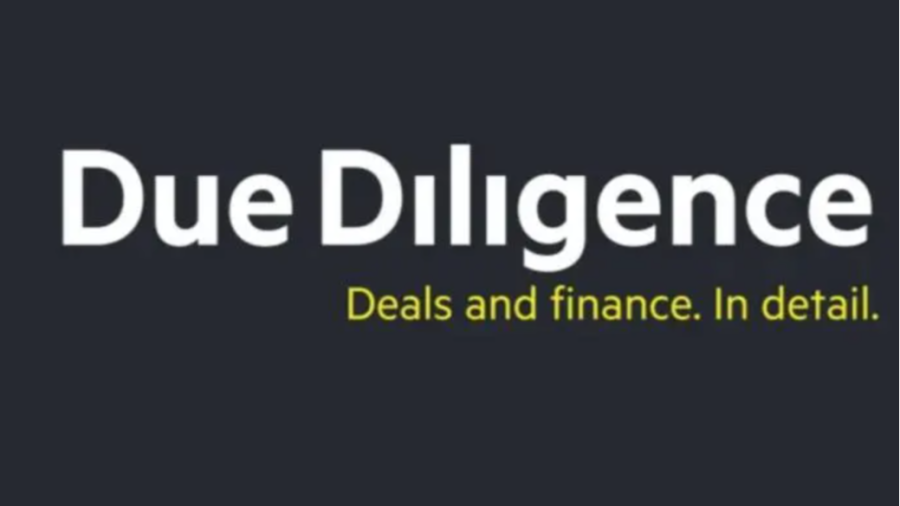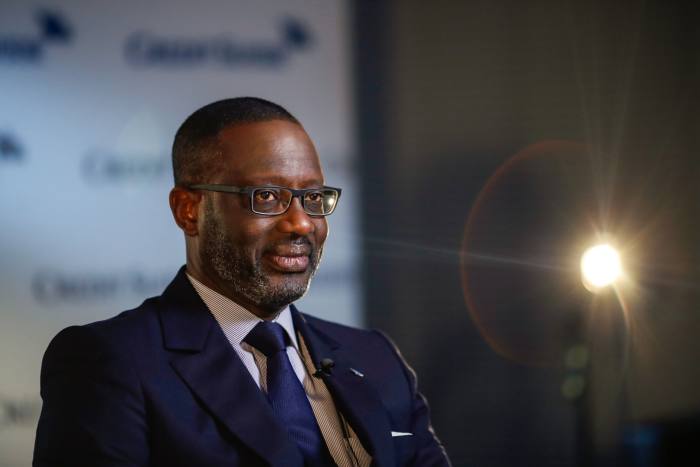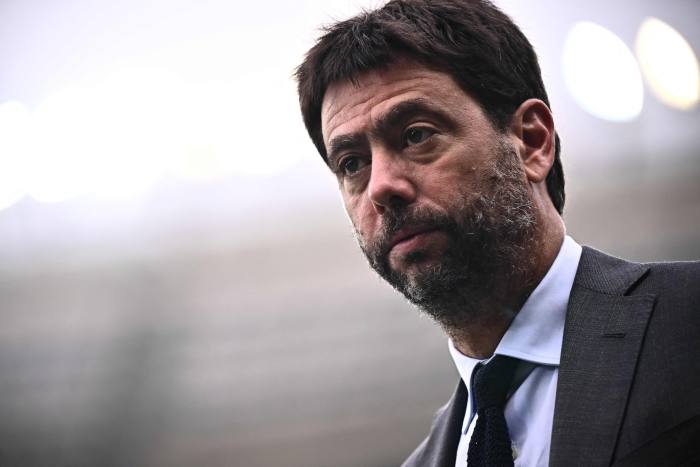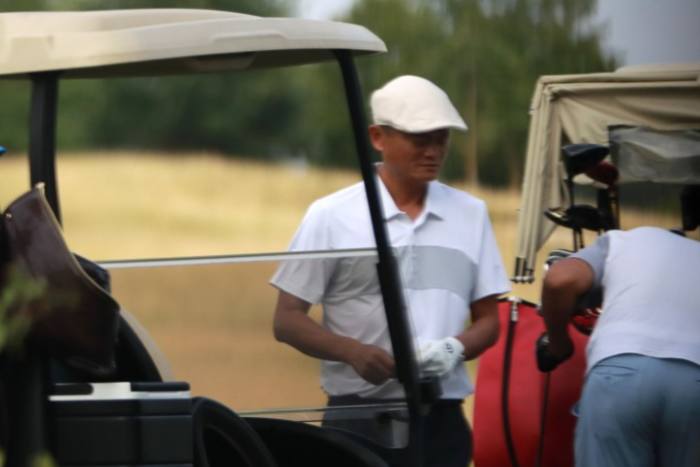
In today’s newsletter:
What Europe’s top bankers are talking about
It’s a difficult moment for bankers. On top of soaring inflation and tightening financial conditions, many are also confronting turmoil from within.
Credit Suisse’s bold gamble to reverse years of scandals and falling share prices, Deutsche Bank’s turnround efforts, JPMorgan Chase’s turf wars for wealthy clients and Goldman Sachs’ struggle to reinvent itself have all captured DD’s interest.
Not to mention HSBC — which just agreed to sell its Canadian business to Royal Bank of Canada for $10bn (pending regulatory approval) — as it resists shareholder calls to split its western and Asian operations.
It’s a gloomy backdrop for the FT’s Global Banking Summit, a gathering of some of the industry’s most powerful figures. While they may no longer be texting about it, they had plenty to say. Here’s the highlight reel so far:
1. Tidjane Thiam defended his time at Credit Suisse
The former boss of the Swiss lender, who left in 2020 following a high-profile corporate espionage scandal, said he was quite proud about calling for a “cultural change” at the bank after it wrote down hundreds of millions of dollars on its distressed debt holdings because of poor risk management protocols.

“I was extremely tough and I’m quite proud that none of that happened under my watch,” said Thiam, one of the first times he has spoken publicly about it.
Asked about his thoughts on Credit Suisse’s share price, Thiam said he was saddened by the bank’s travails and felt “no schadenfreude”.
2. The UK’s political circus is bad for business
Lloyds Banking Group boss Charlie Nunn warned political turmoil in the UK is holding back international investment in the country’s banks, pointing to chancellor Kwasi Kwarteng’s disastrous “mini” Budget in September, which caused a “significant drop off in certainty”. He also cited “concerns about the UK as an investment thesis”.
3. FTX hasn’t deterred Britain’s crypto ambitions
The UK’s City minister Andrew Griffith reiterated the government’s ambition to be a global cryptocurrency hub despite the disastrous collapse of crypto exchange FTX just weeks ago, which has exacerbated an already sweeping industry crisis. He said his approach to setting rules for financial services was to “allow more risk”.
4. ‘Brexit freedoms’
Griffith wants reforms to boost competitiveness as part of a “Big Bang 2.0”.
That would include exempting several large UK lenders from “ringfencing”, a rule introduced by the EU after the 2008 financial crisis to separate banks’ retail and investment arms.
Not everyone agrees. “I’m perfectly happy with maintaining the decision not just to keep ringfencing but to continue it,” said Barclays boss CS Venkatakrishnan, who told the FT that his bank had already invested time and money setting up the ringfenced bank and that it “formed a good financial construct for the UK”.
The conference is still on for two more days so stay tuned for more. It’s not too late to sign up for a digital pass here.
Andrea Agnelli’s fall from grace
Not long ago, Juventus chair Andrea Agnelli was one of the most powerful executives in football. His big-picture — and unpopular — views on how to reshape the sport in Europe included the breakaway European Super League for elite clubs.
But Agnelli will now step down as chair of the Turin-based club after more than a year of pressure from Italian authorities over alleged accounting irregularities.

As Agnelli proposed an overhaul of European football governance, all was not well at Juventus. In focus are the club’s agreements for players to waive salaries during the pandemic amid stalling ticket sales and subsequent “loyalty” bonuses paid to them. Authorities also raised questions about how certain teams reported capital gains related to the transfer of players, which later ended up inflating the overall value of the clubs.
The seriousness of the allegations is such that Agnelli and the rest of the board, including former Ballon d’Or winner Pavel Nedvěd, will stand down. The company has denied the accusations.
This is the biggest off-pitch scandal for Juventus (and Exor, the Agnelli family holding company that controls the club) since the Calciopoli scandal in 2006.
The decision that the board should step down came after a conversation between Agnelli and his cousin, Exor chief John Elkann, according to a person close to Juventus. They determined that a new board was required to address the issues and allow the club to move on.
Juventus has won the Scudetto nine times during Agnelli’s 13 seasons as president. But success has dried up with the resurgence of AC Milan and Inter Milan, and Juventus’s mounting losses. The club has lost more than €550mn in the last three Covid-afflicted seasons. Revised financial statements are due in December.
In a letter to staff, Agnelli cited a quote commonly attributed to philosopher Friedrich Nietzsche: “those who were seen dancing were thought to be insane by those who could not hear the music”.
Where in the world is Jack Ma?
For wealthy Chinese considering leaving their home country, the new expat lifestyle of Alibaba founder Jack Ma might serve as a selling point.
The billionaire has been living in central Tokyo for nearly six months, the FT reports, enjoying private members’ clubs, ski resorts in the Japanese countryside, and the city’s modern art scene.
Ma, who largely disappeared from public view after levelling public criticisms at Chinese regulators two years ago, has kept a similarly low profile in Tokyo, according to people with direct knowledge of his whereabouts. He brought his personal chef and security with him, and keeps his public activities to a minimum.
He has also become a fixture at several exclusive haunts for Tokyo’s nightlife crowd, including one that has become a discreet social centre for Chinese people who’ve sought similar refuge in Japan’s capital, according to members.

It’s the latest stop on an international jaunt that has enabled Ma to avoid strict Covid-19 lockdowns and political tensions back home after his fallout with Chinese authorities. He resurfaced on the Spanish island of Mallorca as well as in the Netherlands and the Czech Republic in July.
People familiar with the matter said that Ma, who has largely handed control of his companies Alibaba and Ant to the next generation of leaders, is using his time in Japan to pursue business interests in sustainability. DD wonders where he’ll go next.
Job moves
-
Apollo Global Management has appointed Connecticut state treasurer Shawn Wooden as a partner and chief public pension strategist for its institutional client and product solutions group. He will join the private equity firm in late January.
-
Radhika Roy and Prannoy Roy, the co-founders of Indian broadcaster NDTV, have resigned from the board of its largest shareholder as Asia’s richest man, Gautam Adani, inches closer towards a hostile takeover of the group.
-
The Qatar Investment Authority has appointed former JPMorgan Asset Management executive Niall Byrne as chief financial officer.
-
Private equity firm TPG has named former Bank of America operating chief Tom Montag and former BofA vice-chair Anne Finucane as chief executive and chair, respectively, of carbon credit upstart Rubicon Carbon.
-
Fortescue Metals Group, one of Australia’s largest mining companies, has appointed Fiona Hick as its new chief executive after poaching the Woodside veteran to run the business.
-
Prada is set to hire former Luxottica boss Andrea Guerra in a top management role to ease the transition to the next generation of its founding family, per Reuters.
Smart reads
Tour de trouble After Peloton’s finances spun out of control, the fitness group’s co-founder John Foley’s wallet has taken a hit, too. It’s a cautionary tale for wealthy individuals living off loans against their stock instead of selling it for income, the FT writes.
Tunnel vision Elon Musk’s tunnel-building venture The Boring Company has dug itself into a hole, after repeatedly backing out of projects confronted with the realities of building public infrastructure, The Wall Street Journal reports.
Cutting the fat The days of talent wars and six-figure starting salaries on Wall Street — once a huge advantage for junior bankers — have backfired as the costs of retaining new recruits have swelled and they find themselves on the chopping block, Financial News reports.
News round-up
Renault chair says he’s confident of reaching deal with Nissan on future of alliance (Reuters)
Ireland set to loosen bankers’ pay rules imposed after financial crisis (FT)
Fosun said to mull sale of India’s $3.8bn Gland Pharma (Bloomberg)
Marcos’s cousin, son push $4.9bn Philippine sovereign wealth fund (Nikkei Asia)
Gambling company 888 to slash £1.6bn debt to quell investor fears (FT)
Banks stuck with $42bn debt seize chance to offload It (Bloomberg)
Recommended newsletters for you
Cryptofinance — Scott Chipolina filters out the noise of the global cryptocurrency industry. Sign up here
The Lex Newsletter — Catch up with a letter from Lex’s centres around the world each Wednesday, and a review of the week’s best commentary every Friday. Sign up here